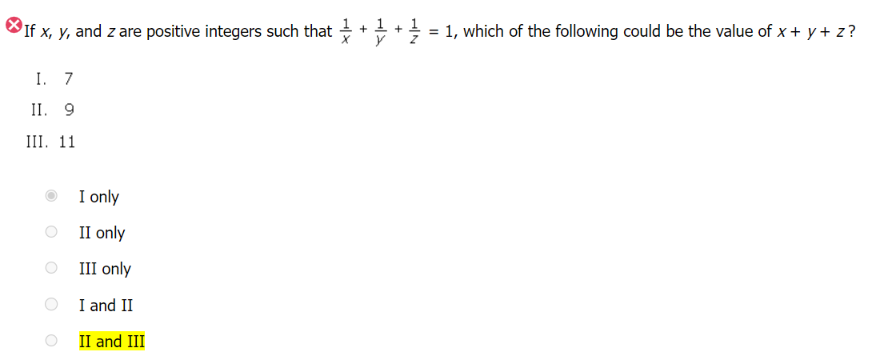Events & Promotions
|
|

GMAT Club Daily Prep
Thank you for using the timer - this advanced tool can estimate your performance and suggest more practice questions. We have subscribed you to Daily Prep Questions via email.
Customized
for You
Track
Your Progress
Practice
Pays
Not interested in getting valuable practice questions and articles delivered to your email? No problem, unsubscribe here.
- Nov 20
07:30 AM PST
-08:30 AM PST
Learn what truly sets the UC Riverside MBA apart and how it helps in your professional growth - Nov 22
11:00 AM IST
-01:00 PM IST
Do RC/MSR passages scare you? e-GMAT is conducting a masterclass to help you learn – Learn effective reading strategies Tackle difficult RC & MSR with confidence Excel in timed test environment - Nov 23
11:00 AM IST
-01:00 PM IST
Attend this free GMAT Algebra Webinar and learn how to master the most challenging Inequalities and Absolute Value problems with ease. - Nov 25
10:00 AM EST
-11:00 AM EST
Prefer video-based learning? The Target Test Prep OnDemand course is a one-of-a-kind video masterclass featuring 400 hours of lecture-style teaching by Scott Woodbury-Stewart, founder of Target Test Prep and one of the most accomplished GMAT instructors.
Kudos
Bookmarks
E
Be sure to select an answer first to save it in the Error Log before revealing the correct answer (OA)!
Difficulty:
 95%
(hard)
95%
(hard)
Question Stats:
47% (02:16) correct 53%
(02:33)
wrong
53%
(02:33)
wrong  based on 974
sessions
based on 974
sessions
History
Date
Time
Result
Not Attempted Yet
If x, y and z are positive integers, such that 1/x + 1/y + 1/z = 1, which of the following could be the value of x + y + z?
I. 7
II. 9
III. 11
(A) I only
(B) II only
(C) III only
(D) I and II only
(E) II and III only

2024-01-29_19-36-12.png [ 27.85 KiB | Viewed 26550 times ]
I. 7
II. 9
III. 11
(A) I only
(B) II only
(C) III only
(D) I and II only
(E) II and III only
Attachment:
2024-01-29_19-36-12.png [ 27.85 KiB | Viewed 26550 times ]
Kudos
Bookmarks
Here, we have to use Arithmetic mean >= Harmonic Mean,
(X+Y+Z)/3 >= 3/(1/X + 1/Y + 1/Z)
(X+Y+Z) >= 3 * 3/1
(X+Y+Z) >= 9
Posted from my mobile device
(X+Y+Z)/3 >= 3/(1/X + 1/Y + 1/Z)
(X+Y+Z) >= 3 * 3/1
(X+Y+Z) >= 9
Posted from my mobile device
Kudos
Bookmarks
Toma13
Use the pattern:
x, y and z are positive integers so their minimum value is 1 each. None of the three can be 1 because then the sum of reciprocals will become 1 with just that number.
So each of them must be at least 2.
2, 2, 2
If one number is 2, no other number can be 2 since the two of them will add to give 1 (1/2 + 1/2 = 1).
So one number can be 2 but then the other two need to be at least 3. So sum cannot be 7
2, 3, 3
But their reciprocals will not add up to 1. If two numbers are defined, the third is automatically fixed.
2, 3, 6 - Sum = 11 (possible)
9 is simple to see - 3, 3, 3
Hence answer (E)












